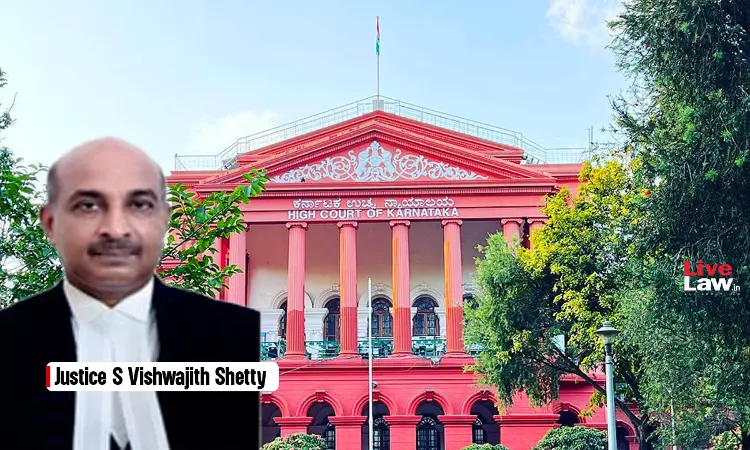- Home
- /
- High Courts
- /
- Karnataka High Court
- /
- Company Must Be Necessary Party For...
Company Must Be Necessary Party For Its Offenses Under Minimum Wages Act, Directors Can't Be Sued Separately For Vicariously Liability: Karnataka High Court
Rajesh Kumar
2 May 2024 8:30 AM GMT
The Karnataka High Court single bench of Justice S Vishwajith Shetty held that a company must be accused as a necessary party for its offences under the Minimum Wages Act, 1948. Persons acting on its behalf, including directors, cannot be criminally prosecuted if the company itself is not named as an accused party. Brief Facts: Mr Padpara Patti and Mr...
The Karnataka High Court single bench of Justice S Vishwajith Shetty held that a company must be accused as a necessary party for its offences under the Minimum Wages Act, 1948. Persons acting on its behalf, including directors, cannot be criminally prosecuted if the company itself is not named as an accused party.
Brief Facts:
Mr Padpara Patti and Mr Sameer Sulathana (“Petitioners”) were accused in a Criminal Complaint before the Court of Judicial Magistrate First Class. The Criminal Complaint stemmed from the allegations of violations of Section 25, Rules 7, 9 & 21 of the Minimum Wages Act, 1948. Subsequently, the Petitioners filed a writ petition before the Karnataka High Court (“High Court”) under Articles 226 & 227 of the Constitution of India for annulment of all proceedings in the Criminal Complaint.
The Petitioners argued that they no longer held directorial positions within the implicated company. Additionally, they argued that the company itself is not named as an accused party in the complaint. Consequently, they argued that the complaint lacked merit and was not sustainably actionable.
Observations by the High Court:
The High Court noted that Section 22(C) of the Minimum Wages Act, 1948 delineates the liability framework for offences committed by companies. According to this provision, if an offence under the Act is committed by a company, individuals in charge of the company's affairs, alongside the company itself, are deemed culpable and subject to prosecution and punishment. However, this liability is not absolute; it contains provisions safeguarding those who can prove their lack of knowledge or demonstrate due diligence in preventing the offence.
The High Court noted that the Petitioners were being pursued in their capacity as directors of Attica Gold Pvt. Ltd. The allegations against them rested on vicarious liability on behalf of the company. However, the High Court noted that there was an absence of the company as an accused entity in the complaint.
Referring to the Supreme Court in R. Kalyani V. Janak C Mehta and Others [(2009) 1 SCC 516] and Aneeta Hada V. Godfather Travels and Tours Pvt. Ltd. [(2012) 5 SCC 661], the High Court underscored the necessity for legal fiction in attributing vicarious liability. It held that vicarious liability can only be affixed as per statutory provisions if there is the creation of a legal fiction against both the company and the accused individuals if they are to be held responsible for the company's actions.
Consequently, the High Court held that without the company being named as a party, prosecuting the Petitioners for alleged offences becomes untenable. Therefore, the High Court quashed the proceedings in the Criminal Complaint.
Case Title: Padpara Patti Syed Basha Aysb and Anr. vs The Labour Department Government of Karnataka Office at Labour Officer and Anr.
Case Number: Writ Petition No. 14973 OF 2023 (GM-RES)
Advocate for the Petitioner: Mohammed Tahir
Advocate for the Respondent: R. Rangaswamy


